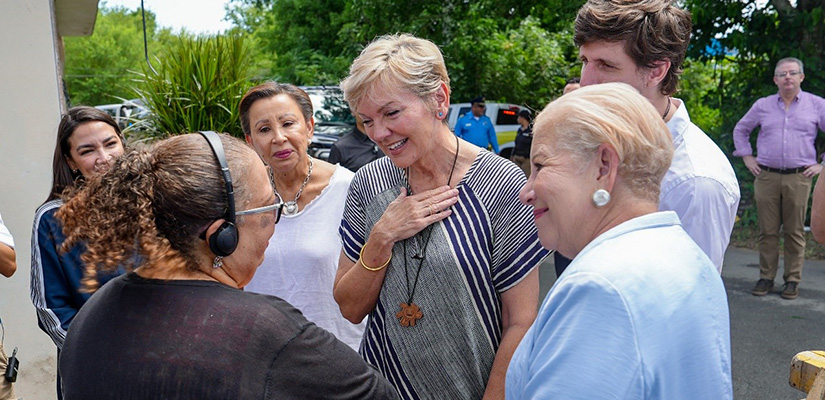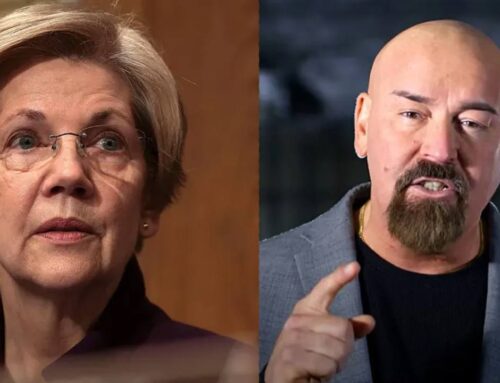DOE and NREL Work Together To Launch Programa Acceso Solar (Solar Access Program) Providing Subsidized Solar Panels and Battery Storage to Puerto Rican Households
October 16, 2024
Effort To Increase Grid Resilience and Energy Access for Low-Income Communities in
Puerto Rico Enters Its Next Phase
After Hurricane Fiona in October 2022, President Joe Biden visited Puerto Rico and
pledged to leverage the technical support of federal agencies to improve the archipelago’s
electric grid.
In December 2022, President Biden signed the Fiscal Year 2023 Consolidated Appropriations
Act into law, which included $1 billion to establish the Puerto Rico Energy Resilience Fund (PR-ERF) to drive key investments in renewable and resilient energy infrastructure in the
commonwealth. The fund also supports Puerto Rico’s goal of meeting 100% of its electricity
needs with renewable energy by 2050. The U.S. Department of Energy’s (DOE’s) Grid
Deployment Office launched the PR-ERF in February 2023 to alleviate both the energy
cost and grid resilience challenges that Puerto Ricans face.
In the summer of 2023, DOE issued a funding opportunity announcement—a public notice
to fund installations and consumer protection for its new Programa Acceso Solar, an
initiative to connect low-income households across Puerto Rico with subsidized rooftop
solar and battery storage systems. The funding opportunity announcement gave solar
companies, nonprofits, energy cooperatives, and governmental bodies a chance to apply
for federal funding. DOE also launched the Solar Ambassador Prize, a complementary
competitive funding opportunity for organizations in Puerto Rico to help identify,
engage, and assist with the intake processing of qualifying households for residential
solar and battery installations. Currently, 14 solar ambassadors selected through
the prize are actively working to identify eligible households for subsidized solar
and battery storage installations through Programa Acceso Solar.
The Programa Acceso Solar and the Solar Ambassador Prize make up the first round of
PR-ERF funding. In July 2024, DOE announced the second phase—the Programa de Comunidades Resilientes (Resilient Communities Program)—to increase energy resilience for community healthcare
facilities and shared spaces within subsidized multifamily housing. These PR-ERF programs
will be implemented over the next few years with the National Renewable Energy Laboratory’s
(NREL’s) continued support of the program design.
Building Energy Resilience Through Collaborative Success of the Programa Acceso Solar
Applications are currently open for Puerto Rican households to apply to the Programa Acceso Solar, and solar installers have already begun installing subsidized solar and battery
storage systems for low-income homeowners. The Programa Acceso Solar provides these
installations with zero upfront costs, including education and support on how to use
and maintain the systems through partnerships with several installers and community-based
organizations.
“The impact of the Programa Acceso Solar will be incredible,” NREL Project Lead Mike
Campton said. “Thousands of people will be able to access reliable and affordable
electricity for their homes. I am incredibly proud to say that NRELians played a huge
role in delivering this positive impact to Puerto Ricans.”
NREL’s team helped DOE determine which homes qualified for solar and battery installation
and facilitated outreach and intake efforts. NREL’s Caleigh Isaacks, project manager,
led the team assisting DOE’s Grid Deployment Office in developing, implementing, and
managing the prize since the program’s inception. In addition, the NREL team has also
contributed to outreach efforts, including webinars and training sessions, and played
a key role in shaping the funding structure and rules.
“It is truly special to be a part of such an important project,” Isaacks said. “The
team’s efforts in collaborating with local community-based organizations for outreach
and directly assisting homeowners across Puerto Rico are critical to rebuilding the
grid there.”
Thousands of low-income households across Puerto Rico are eligible for solar and battery
storage systems through the Programa Acceso Solar. This includes households in areas
most affected by frequent and prolonged power outages, as well as those with residents
dependent on electricity-powered medical equipment.
Energy analysts and software engineers at NREL, like Brian Mirletz, lead the research
efforts to support the Programa Acceso Solar. Mirletz evaluated potential designs
for residential solar-plus-battery storage systems using NREL’s System Advisor Model™. With this model, Mirletz determined how factors such as the energy needs of equipment
for people with disabilities could impact the systems’ ability to meet critical loads
during power outages.

talk with a homeowner who received one of the first solar and battery storage systems
through the Programa Acceso Solar in July 2024. Photo by DOE
In early July, inspectors from partner installers evaluated the first applicants’
homes to receive systems through Programa Acceso Solar. One inspected home now awaits
the installation of an almost 6-kilowatt solar and battery system. The program will
cover the majority of the homeowner’s nearly $200 monthly electricity costs. Once
the system is installed, the homeowner will pay only $20 per month to cover maintenance
expenses.
“I’m thrilled to hear about the first of those systems being installed!” Mirletz said.
“It is amazing to see a physical realization of the analysis work our team has done
for this project in the last year and what it will mean for communities in Puerto
Rico in the future.”
Learn more about the Puerto Rico Grid Resilience and Transitions to 100% Renewable Energy Study and the Solar Ambassador Prize. Read about NREL’s grid modernization research.
Search
RECENT PRESS RELEASES
Related Post




